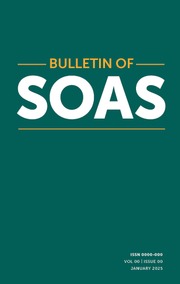The important role of military writings in the origin and evolution of political and philosophical ideas in early China has not always been given due attention, yet a quick glance at the number of transmitted military texts, together with those that have been unearthed in recent decades by archaeologists, is sufficient to indicate that this is a key category in the intellectual scene of the period. This constant presence of military matters at the heart of early Chinese writing production arises not only from the fact that the authors of these pieces were working on them in a historical context marked by wars and hence it is logical that their works should testify to this dramatic reality but also, in many cases, the reflections on war in this substantial literature are concerned with specifically philosophical (moral, political and even cosmological) issues.
Although there are some exceptional contributions, for example, the seminal work by Mark E. Lewis, Sanctioned Violence in Early China (1990), hitherto, anyone wishing to acquire deeper knowledge about the impact of military literature in pre-imperial China's history of ideas has needed to consult a 1977 PhD thesis written by Christopher C. Rand and successfully defended at Harvard University. Now, forty years on, Rand has had the felicitous idea of publishing a study based in good part on the initial work, which is ground-breaking in many respects. Hence, the appearance of his book Military Thought in Early China is, by any reckoning, excellent news for all readers who are curious about ancient China, its intellectual history, and the evolution of its institutions and ways of thinking.
The book is organized into five chapters. In the first, headed “The emergence of the Wen/Wu problem”, Rand sets himself the task of offering the reader a complete approximation to the different (and sometimes irreconcilable) ways of interpreting the scope and sense of these two fundamental concepts – the civil and the military— from their earliest meanings at the dawn of the Zhou Dynasty, through major changes in the understanding and application of these concepts as writings from the Spring and Autumn period testify, to other answers dating from the Warring States period as the result of an intense debate not exempt from tensions and different viewpoints. The second chapter, titled “The metaphysics of generalship”, analyses what Rand understands as one of the philosophically most relevant solutions, which tends to highlight a syncretic integration of the notions of civil and military: the metaphysical approach to armed conflicts focused on the figure of the general. Taking the figure of the commander as his starting point – and by way of a rich, complex network of analogies between, on the one hand, the extraordinary virtues of the general (qualities of perception, psychic power, and so on) as described in this literature and, on the other, some of the cosmological concepts and principles characterizing the time (control of vital energy, for instance), Rand studies the ways in which the military literature shows how the general seeks to neutralize the destructive power of the adversary and, accordingly to guarantee his own supremacy. In his third chapter, titled “The practical and meta-practical”, Rand complements the metaphysical perspective with an analysis of the practical side of martial matters, offering a study of organizational, administrative, logistical, disciplinary, and tactical aspects of military knowhow. If the two preceding chapters explore responses to the conundrum of civil and military relations from the standpoint of what the author calls the “syncretic solution”, in the fourth chapter, titled “The moral dimension of war”, Rand moves closer to what he calls in the first chapter the “compartimentalist solution” in order to examine ethical responses offered to the dilemma by some of the most important philosophical texts and intellectual figures of the day (Confucius, Mozi, Laozi, Mengzi, Xunzi…), and to gauge their influence in the military literature. Finally, with the closing chapter, “The permutations of Western Han”, Rand leaves the pre-imperial period to situate his analysis in the Han Dynasty and thus to trace the disputes and tensions which arose between the proposals ascribed to the ideology of the Huang-Lao school which was linked to the syncretic conceptions regarding civil and military uses, and other ideas associated with the Confucian tradition and akin to compartmentalist positions which tended to separate martial activities and values from those of the civil sphere.
Rand's book is not free of questionable arguments (for example, his use of the term “metaphysical” in the second chapter is, to my mind, far from being evident or even methodologically operative), hackneyed ideas which needed closer critical scrutiny (including assumptions regarding the dating of some early texts, or the way in which Confucius' anti-militarist stance is outlined, despite the fact that some textual sources less frequently quoted than The Analects, like the Da Dai Liji and the Kongzi jiayu offer a more nuanced account of this matter), it does not contain any substantial reflection on the rhetorical dimension of early military texts (an issue already studied in the year 2005 in a paper by Mark E. Lewis), and it lacks some notable bibliographical references (like Uffe Bergeton's PhD thesis on the Wen/Wu binomial, or the study and annotated translation of the chapter devoted to military strategy in the Huainanzi by Andrew S. Meyer). However, although these and other critical considerations are by no means negligible they do not remotely eclipse the great academic value of this rich, very well documented, and illuminating book which will, no doubt, very soon become an essential work of reference for all those who are interested in the role played by military texts in early Chinese intellectual history.


